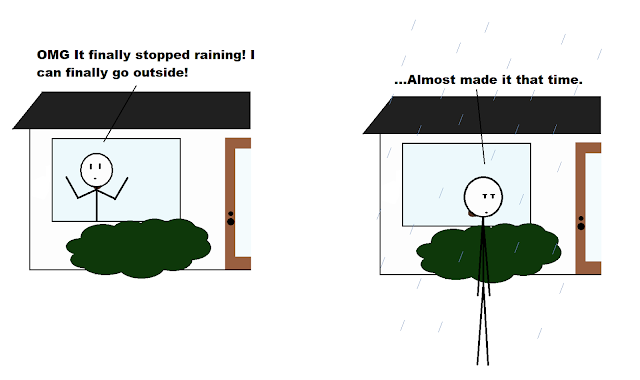I thought that the suffix -Tude would be an interesting thing to look at this week. Then I realized just how many words end in it and I was like, damn it. Damn it all. People just shove it at the end of words all the time because it’s a word forming element that appears in abstract nouns. It’s from the French -ude and classical Latin -udo, and here’s a bunch of words that end with it.
Attitude
Attitude showed up relatively recently in word terms, sometime in the mid seventeenth century, where it meant a position of a figure in a statue or painting, although it could mean a “mode of regarding” when it was short for the phrase attitude of mind. Apparently from there it morphed to the “posture of the body supposed to imply some mental state” and then in the nineteenth century behavior reflecting an opinion. It wasn’t until 1962 that it took on the arrogant, insolent connotation as a form of slang. Anyway, the word itself comes from the French attitude and Italian attitudine, disposition or posture. Before that it was the Late Latin aptitudinem, which, well, it looks like aptitude for a reason.
Aptitude
Which leads us to our next word. Aptitude showed up in the early fifteenth century from the Late Latin aptitudo, fitness, which is related to the abovementioned aptitudinem. That in turn is from the classical Latin aptus, suited or fitting. How...apt.
Gratitude
Gratitude showed up in the mid fifteenth century from the Middle French gratitude or Medieval Latin gratitudinem, thankfulness, which can be found in the classical Latin gratus, grateful. But looking at grateful and gratitude lets you really see how different the suffix can make a word. Grateful is something you are, while gratitude is something you have!
Platitude
We have an exact year for this word: 1812, where it showed up meaning dullness. Really! It’s from the French platitude, which literally translates to flatness and comes from the Old French plat, which means flat. And is the origin word for plateau. Plat- is actually a Proto Indo European root word meaning to spread and actually shows up in a lot of words (pretty much anything with flat, plat, or plane in it, as well as more that we’re not getting into today). As for why platitude is another word for cliché, well, you know how dull those sayings are.
That’s it for this week. But don’t worry. There are many more -tude words to look into!
Sources









